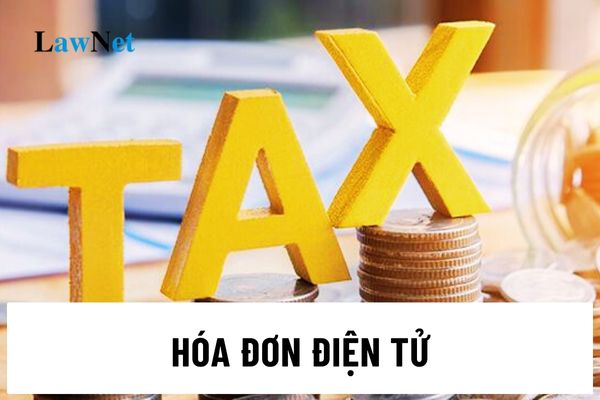What is an e-Invoice? What are principles of issuing, managing, and using e-invoices in Vietnam?
What is an e-invoice?
Pursuant to Article 89 of the 2019 Tax Administration Law, e-invoices are invoices with or without tax authority codes, displayed in e-data format, created and recorded by organizations or individuals selling goods or providing services, in accordance with accounting and tax law regulations using e-means. This includes invoices generated from cash registers connected to the tax authority's e-data transmission system.
Additionally, e-invoices include value-added tax invoices, sales invoices, e-stamps, e-tickets, e-cards, e-receipts, e-delivery notes, or other e-documents with different names.
An e-invoice with a tax authority code is an e-invoice that receives a code from the tax authority before the organization or individual sells goods or provides services and sends it to the buyer.
The tax authority's code on the e-invoice includes a transaction number—a unique sequence of numbers generated by the tax authority's system—and a character sequence encoded by the tax authority based on the seller's invoice information.
An e-invoice without a tax authority code is an e-invoice sent by the goods seller or service provider to the buyer without a tax authority code.

What is an e-Invoice? What are principles of issuing, managing, and using e-invoices in Vietnam? (Image from the Internet)
What are principles of issuing, managing, and using e-invoices in Vietnam?
Pursuant to Article 90 of the 2019 Tax Administration Law, the principles for issuing, managing, and using e-invoices are as follows:
(1). When selling goods or providing services, sellers must create e-invoices to deliver to buyers according to the standard data format and must record full content as prescribed by tax law and accounting law, regardless of the value of each sale or service provision.
(2). If the seller uses a cash register, the seller must register to use e-invoices generated from the cash register connected to the tax authority's e-data transmission system.
(3). The registration, management, and use of e-invoices in selling goods or providing services must comply with the regulations of e-Transactions law, accounting law, and tax law.
(4). The issuance of tax authority codes on e-invoices is based on the information of the business, economic organization, other organizations, business households, and individual businesses created on the invoice.
Businesses, economic organizations, other organizations, business households, and individual businesses are responsible for the accuracy of the invoice information.
What are regulations on e-invoice database according to the Law on Tax Administration in Vietnam?
Pursuant to Article 93 of the 2019 Tax Administration Law, the regulations on the e-invoice database are as follows:
(1). The tax authority has the responsibility to organize, build, manage, and develop the database and technical infrastructure of the invoice information system; carry out the task of collecting, processing information, managing the invoice database, and ensure the maintenance, operation, confidentiality, security, and safety of the invoice information system; and establish standards for invoice formats.
The e-invoice database is used to serve tax management and provide e-invoice information to related organizations and individuals.
(2). Businesses and economic organizations specified in Clause 2, Article 91 of the 2019 Tax Administration Law using e-invoices without a tax authority code must provide e-invoice data according to the regulations of the Minister of Finance.
(3). The Ministry of Industry and Trade, the Ministry of Natural Resources and Environment, the Ministry of Public Security, the Ministry of Transport, the Ministry of Health, and other related agencies have the responsibility to connect and share necessary related information and data with the Ministry of Finance for building the e-invoice database.
(4). When inspecting goods in circulation in the market, for cases using e-invoices, state agencies and authorized individuals shall access the tax authority's e-portal to lookup e-invoice information for management purposes and shall not require paper invoices.
Related agencies are responsible for using devices to access and lookup e-invoice data.
(5). The Minister of Finance shall regulate the forms, management, and use of e-stamps; prescribe the lookup, provision, and use of e-invoice information; and regulate the provision of e-invoice information in cases where invoice data cannot be accessed due to incidents or natural disasters affecting Internet access.

